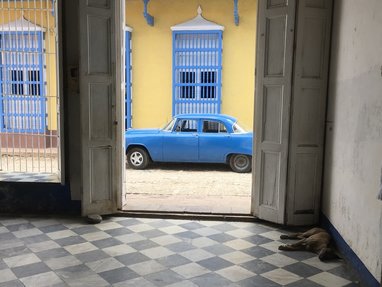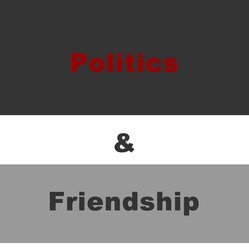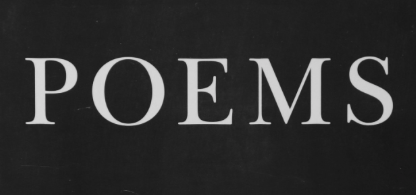|
FROM WENCE THEY CAME They came out of despair They came to escape violence They came from extreme poverty Seeking a better life For their children Now jailed As hostages In a game of hate Go home and die. JOB DESCRIPTION When he swallowed the last of his pride It went down hard And lumpy Like coal But he got the job And now all he has to do Is kiss a lot of ass Tell a lot of lies And bear witness to the last of an empire THE BIG FAIL They march to his drum beat
Politicians Goose-stepping away the last of their dignity And integrity Bidding a fond adieu to democracy Which was pretty much shit anyway Look what it gave us Wannabe a strongman? Wannabe an autocrat? Wanna get rid of the people of color? And the free press? And dissent? And morality? Now that democracy has failed What grand experiment shall we try next?
0 Comments
 My wife and I recently returned from a cruise to Cuba. It was a small ship and we were able to circumnavigate the island, stopping in Havana, Cienfuegos/Trinidad, and Santiago. Since our return I’ve been struggling with how to write about Cuba without being overly trite or over generalizing. On the superficial (or potentially trite) level, there is, of course, the beautiful architecture, the ubiquitous old American cars (much more common than I had thought), and the music. On the more subjective (and subject to potential generalizations), there is the people and the politics. Judging from the discussions on our ship, which were led by two Cuba “experts,” most people’s fascination with Cuba is grounded in the mystique of its geopolitical history, the uncertainty of its future, and the indomitable spirit of many of its people. Of course, had that mystic not been clothed in the delightful gifts to the senses, to Americans I suspect Cuba would be just another country with a troubled past and decades of hardship. If there’s one thing I’ve learned from traveling the world, and particularly Africa, it’s that making learned-sounding pronouncements about the history or politics of a particular place is ill-advised and usually only partially correct. I liked the fact that the speakers on our cruise were perfectly willing to answer a question with “I don’t know.” The Cuban guides, on the other hand, were armed with statements and answers with which they had obviously been programmed through their education. None of the guides we came into contact with had been alive at the time of the revolution, yet one guide in particular never uttered the word “revolution” without combining it into the phrase, “the triumph of the revolution.” All of the guides had adopted Fidel Castro’s term “special period” as a euphemism for the period following 1990 when the Soviet Union collapsed and Cuba lost its ‘sugar daddy.’ The “special period” was a period of virtual starvation. While on the cruise one of the speakers gave me a novel by a Cuban writer, Leonardo Padura. It was a mystery set in Havana in the late 1980’s, a good story, beautifully written. But what struck me was how much more one can learn about a country’s culture from a novel versus from a lecture or essay. The day-to-day lives of people can come alive in the course of a well-written novel. And, indeed, the daily hardships of Cubans, even in the years leading up to the “special period,” when not romanticized by propaganda, are part and parcel of Padura’s description of life in Havana. [I am now reading another Padura novel which takes place during the “special period” and the portrayal of people’s struggle to survive is enlightening and compelling.] The people of Cuba have gone through some seriously bad shit. Assign whatever cause you want to it: America turning its back on Castro following the revolution, Castro turning to the Soviet Union, Communism, Cuban-Americans’ stubborn refusal to ease or lift the embargo, Castro himself, etc. The point is, there is more than enough geopolitical blame to go around and a phrase I think would be more applicable than “the triumph of the revolution” would be “the triumph of spirit.” By David Myles Robinson  When I think of a good political argument among friends, I picture four older Italian men sitting around a table at an outdoor café in Rome, a half-drunk bottle of red wine at the center. The discussion is loud. The men gesticulate wildly as they make their respective points. The wine is consumed. The voices rise. The arm and hand gesticulations become grand manifestations of their passion. Suddenly one man makes a brash utterance of disgust, wagging with his four fingers touching his thumb as he does so. He turns in his chair, crosses his arms against his chest, and stares off into the piazza. But his disengagement lasts but a minute. His pretend indifference can only last so long. He hears something he disagrees with and whirls around to rejoin the fray. When the men finish the wine and the argument has petered out, they laugh and toast each other and talk about ordering another bottle of wine, perhaps accompanied by a game of dominoes. That’s the kind of political debate, sans gesticulation (we are Americans, after all), I used to have with my conservative friends. The level of loudness and civility would, I admit, tend to change for the worse the more participants there were and the more lopsided the partisan divide. People tend to become emboldened in their rhetoric when they sense they are being cheered on by their peers. All in all, however, for someone like me who is an admitted political junkie, it was fun and stimulating. But somewhere along the lines things changed. I’m not going to blame Trump for the change, although there has been an even greater evolution of deteriorating civility since he took office. Like so many things after 9/11, civil discussion and individual critical thinking seemed to have shifted into pure partisan harangues. It had suddenly become unpatriotic to question the Commander-in-Chief’s decisions on the war. Staunch Democrats in Congress (can you say Hillary Clinton?) voted to go to a war against a country which had nothing to do with 9/11 and which couldn’t have effectively used its weapons of mass destruction even if they did exist. One cannot really put too much blame on individuals who bought into the program. Even then, however, despite the fact that I took verbal beatings from my friends who were for the war, we remained friends and rarely shied away from expressing our opinions. With Obama’s election, the shift toward incivility became more pronounced. Bizarre and racist accusations about his birth and his so-called extreme socialist politics forged a divide which became almost impossible to breach. Policy disagreements aside, none of the hyperbolic and hysterical predictions about the Obama presidency became true. And no one apologized to the American people for their lies and dystopic pronouncements (although Glenn Beck did come pretty close to doing so). In our group of friends, the agreement was to avoid political discussions entirely, although in one-on-one situations I was still able to have good talks with a few of my moderate conservative friends. And then came Trump, and those of us on the left struggled with how so many Americans could be so vociferously supportive of a man who had been proven to be racist, bigoted, misogynistic, fraudulent, and a pathological liar. How could friends who I knew to be smart and caring and patriotic be so ‘all-in’ with such a despicable human being? Meanwhile, those on the right were every bit as mystified as to why those of us on the left were so vehemently against a man who “tells it like it is,” and who will “bomb the shit out of ISIS,” and who will “kick all the bad hombres” out of the country. So here we are. We don’t talk. We sometimes post our opinions on Facebook. We know in our hearts that does little other than fan the flames of division, yet on both sides we feel an overwhelming need to express ourselves. We can no longer do it in person so we turn to social media. But, in the end, isn’t that worse? When a rant is over we can’t lift a glass of wine and toast to our friendship and our agreement to disagree. We are left with a simmering angst and a real fear that we may have lost yet another close friend. Yet even as I write this, I’m not going to stick my head in the sand and stay silent. I can’t. All I can do is tell my conservative friends that although I may not respect their judgment as to the man they have elected President, we became friends before we were politically divided. We all saw something in each other that made us want to be friends. We know there is love in our hearts. So we need to suck it up and maybe shake our heads in wonder and then, in our minds, lift a glass to our friendship and to the differences that make us interesting. When we die, it won’t be our politics for which we are remembered, it will be the ways in which we touched each other’s lives. |
David Myles RobinsonAs will become readily apparent, my blogs will not just be about my books or even writing in general. They will be about whatever suits my fancy--and yes, I'm sorry, but that may include politics from time to time. We live in an interestingly tempestuous time and as a writer I find it impossible to ignore the worldwide psycho-drama (and, at times, psycho-comedy) being played out before us on a virtual daily basis. Archives
May 2021
Categories
All
|

 RSS Feed
RSS Feed